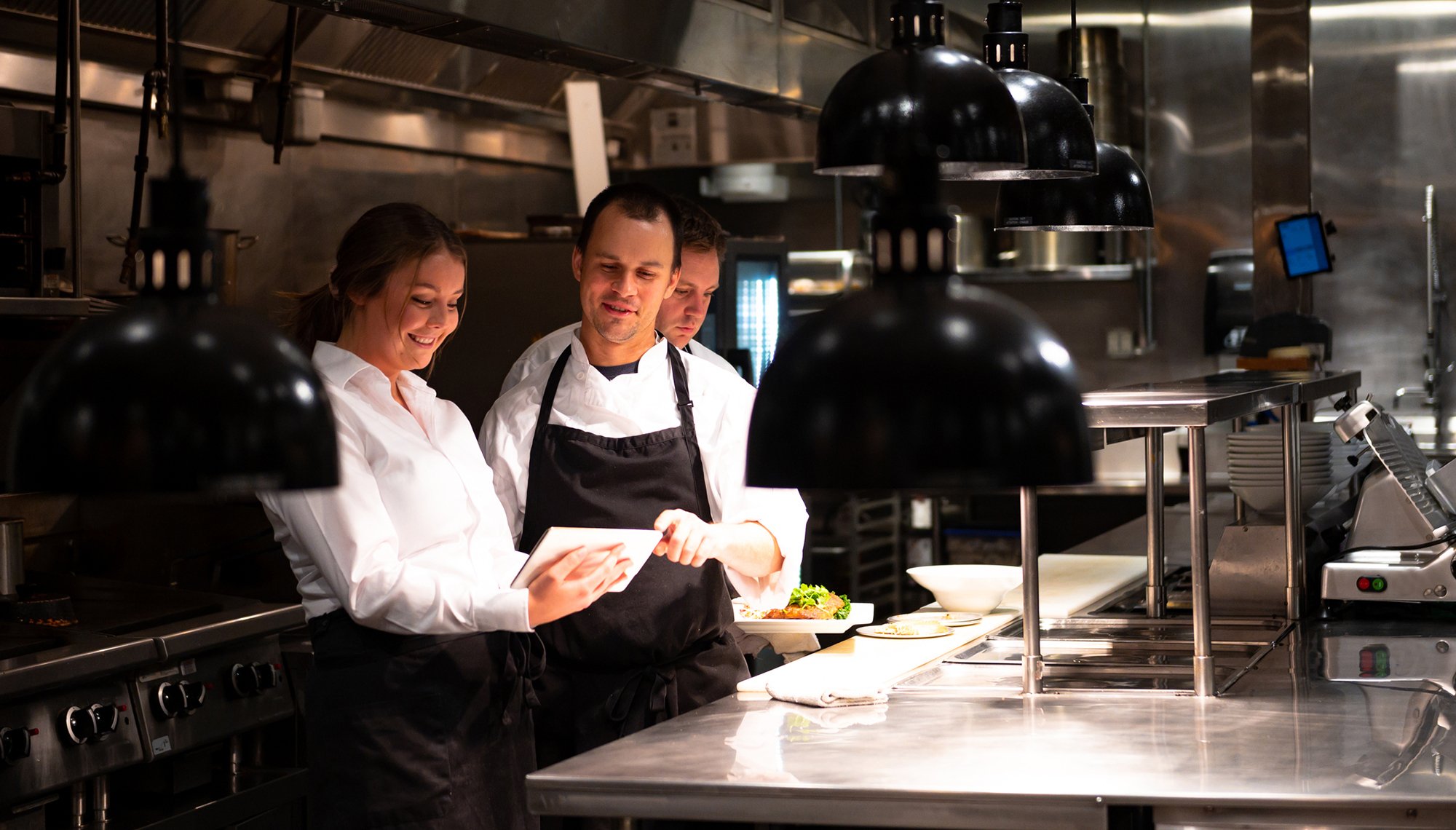Tips to increase staff retention in restaurants

06 Oct 2023
Food Safety Consultant Heather Hayward outlines some of the associated risks resulting from low staff retention in restaurants and solutions to help.
Like many parents I took a few days off during the School holidays to spend some time with my teenage daughter. One day I decided to treat her for lunch and so we headed off in the car to her favourite local restaurant. From the car park I could see empty tables through the window, and so we strode in already discussing our menu choices. The host at the door greeted us with a warm smile, and then apologised that the restaurant was full.
"What do you mean you are full?" I asked. "I can see empty tables!!" He blushed, and then explained that they were short of staff. They had unfilled vacancies and only two waiting staff had arrived for duty that day. Disappointed, the teenager stomped off back to the car and we abandoned our plans.
This scene is being repeated at restaurants across the country. Recruitment and retention of staff is a huge issue for the hospitality sector at this current time. According to a YouGov survey, retention is at 70%. Whilst that number sounds quite large let's turn it around. It means that 30% of staff will leave this year. Just under a third. There are a variety of reasons as to why staff leave. It could be due to poor communication, poor leadership / management, lack of promotion prospects, financial or even company culture to name a few.
A high staff turnover leads to increased risks for a business. For example, increased costs in recruitment and training new starters. Staffing issues can cause compliance gaps in food safety or health and safety due to the remaining staff feeling under pressure, and taking short cuts – or lack of skills and knowledge of new staff.
What can be done to retain hospitality staff?
It's important to use a variety of strategies:
Culture - A positive working environment, with mutual respect and support ingrained in the company DNA is important. Companies who place a value on their culture ensure staff know what is expected of them. This is underpinned by clear policies and procedures. This solid culture as an employer invariably leads to an excellent embedded Food Safety culture too. It is key for everyone to be on the same page when it comes to safe handling of food. If food safety is compromised, this can hurt a business, and overnight, your organisation's reputation can plummet, with low ratings and distrust.
Recognising and valuing staff – This links closely with culture (above). People perform better and more productively in their roles if they feel secure, supported, and valued as an employee. This can be from simply asking "how are you?" to taking time to thank them for a job well done.
Open, two-way Communication - Communication contributes to a functional, productive workplace. It increases trust, improves teamwork, provides clarity, helps resolves issues, increases productivity and staff engagement. As a business you will probably use lots of different methods of communicating – from informal conversations, noticeboards, emails, team meetings to formal documented review meetings.
Training and Development - A 2018 LinkedIn report suggests that 94% of staff would stay at a company longer if they invested in their training and development. If you're effectively communicating with your staff, you can also find out their aspirations and career ambitions. They are far less likely to leave if they feel as though you are taking the time to train them to a higher level.
Train to Retain
Compliance surgeries
Intertek's compliance surgeries in the UK are very popular – they are sessions delivered by our restaurant auditors and take place on-site. They benefit chefs, front of house, general managers, newly promoted supervisors etc. Attendees really value these interactive sessions where they can discuss their challenges and interact with the auditor which helps to break down the 'fear' factor the auditor can present.
Topics are bespoke to the client and could include for example brand standards, allergen risk, pest control, health & safety, hygiene, labelling, food safety and compliance. As these sessions take place on-site, the trainer will include a restaurant and kitchen walk-around highlighting best practice.
Intertek takes a coaching approach, and we are not just a tick box exercise, our auditors really care that teams achieve high standards and will go above and beyond to help them achieve their goals.
I've been out with our restaurant auditing team, and they are a great resource for our clients to utilise. Between them they have many years of restaurant experience and love to be the team coach when needed.
Food safety courses
We also have an extensive portfolio of public food safety courses delivered by our Intertek Academy team that can be delivered virtually on-line by a live instructor, or onsite. They include Foundation, Internal and Lead Auditor courses for BRCGS Food Safety, plus HACCP up to level 4, and many other associated food safety topics such as Food Labelling & Legislation, Shelf Life, Allergens, Traceability and Pest Control.
An alternative to public or onsite courses are our e-learning courses where you learn in your own time shorter training courses.
For further information email ba.eca@intertek.com or visit Intertek.com/food.

Heather Hayward
Food Technical Consultant, Intertek UK
With over 20 years food manufacturing experience, Heather draws on her knowledge to support our clients through various projects ranging from supporting smaller suppliers to meet retailers' food manufacturing requirements, updating a specification management system for restaurants and retail outlet allergen audits to gap analysis work, desktop traceability audits and support in generating risk assessments, policies and procedures.